Search
Search Results
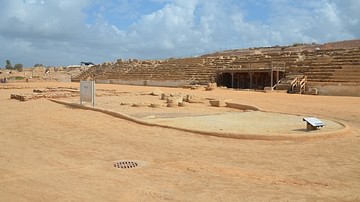
Image
Hippodrome of Caesarea Maritima
The hippodrome of Caesarea Maritima was built by Herod the Great (r. 37-4 BCE) for the inauguration of the city in 10/9 BCE. It was the venue of the Actian Games, instituted by King Herod in honour of the Roman emperor Augustus (r. 27 BCE...

Image
Delphi Charioteer
Life-size bronze charioteer statue, set up by the tyrant Polyzalus from Sicily as a tribute to Apollo, likely to commemorate his victory in the Pythian Games held at Delphi every four years in 474 or 470 BCE. It was part of a larger four-horse...
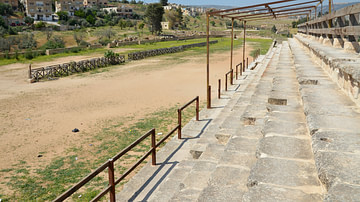
Image
Jerash Hippodrome
The Hippodrome of Gerasa in modern-day Jerash in Jordan is the smallest of the 48 Roman circus buildings known today, measuring about 250 x 50 m. However, it is one of the best-preserved Roman circuses in its functional and technical elements...
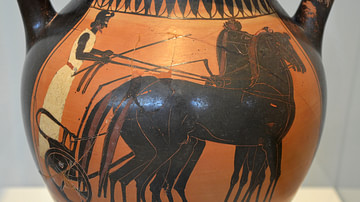
Image
Greek Amphora with a Quadriga
A depiction of a quadriga with a charioteer waiting for the start of the chariot race on an Attic black-figure kylix, dated to 510 BCE.
National Archaeological Museum of Athens.

Article
Poor Man of Nippur
The Poor Man of Nippur (c. 701 BCE) is a Babylonian poem on the themes of the obligations of hospitality and revenge for an undeserved injury. A poor man of the city of Nippur feels mistreated when he visits the mayor and then goes to great...
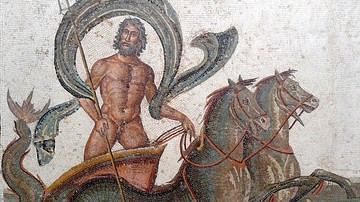
Definition
Neptune
Neptune is the Roman god of the sea and the Roman equivalent of the Greek god Poseidon. He was originally a god of fresh water and became associated with Poseidon early on in Roman history. He lives in a golden palace at the bottom of the...
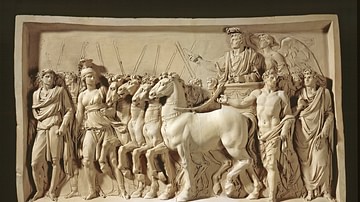
Definition
Roman Triumph
A Roman triumph was a spectacular celebration parade held in the ancient city of Rome for a military commander who had won an important victory on the battlefield. Granted by the Senate, it was a lavish and entertaining propaganda spectacle...
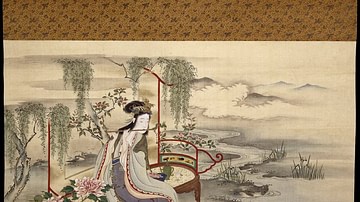
Article
Song of Everlasting Sorrow
The Song of Everlasting Sorrow is a narrative poem of the Tang Dynasty (618-907 CE) inspired by the love affair between Xuanzong (r. 712-756 CE), the seventh emperor of the dynasty, and his consort Lady Yang. It was written by the Chinese...
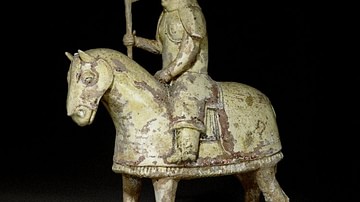
Article
Cavalry in Ancient Chinese Warfare
The use of cavalry in Chinese warfare was a significant development which was largely responsible for the abandonment of chariots, that vehicle being much slower and more cumbersome to manoeuvre in battle conditions. The greater speed and...

Article
Pherenike the Female Olympic Trainer
Pherenike (l. c. 388 BCE, also known as Kallipateira) was an athlete from Rhodes who, because she was a woman, could not compete in the Olympic Games and, as a married woman, was not allowed to even watch them. Defying these rules and risking...